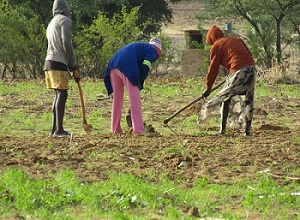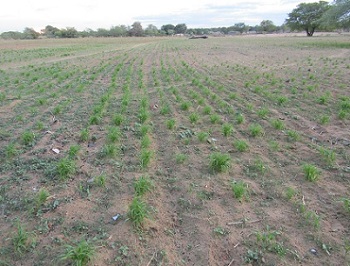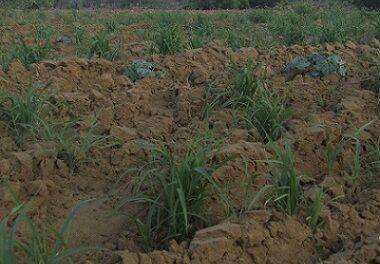As the current rainy season progresses, good rainfall has been recorded in almost all parts of the country.
As a result, crop farmers are witnessing a productive crop production season with noteworthy growth of maize, sorghum, and pearl millet (mahangu).
“However, amidst the pleasant growth,” notes Mr Hanks Saisai, “a crucial aspect of production for farmers to undertake, is weeding in their crop fields.”
Saisai, who is technical adviser on crops and poultry at Agribank, explains that “a weed is an unwanted plant that grows among desirable crops that a farmer has planted. Weeds have negative effects as they compete with crops for water, nutrients and sunlight.”
Furthermore, weeds can significantly lower the quality of crops by contaminating seeds, while some weeds can be alternative hosts for pests and disease-causing organisms.
“However, when undertaking weed control, which is the actual removal of weeds from the field or garden on which the desired crop is growing,” he says, “it is essential to ensure that economical and environmentally friendly techniques are used within a reasonable period to allow the main crop to grow well.”
Saisai further explains that weed control is important for several reasons.
“Firstly, it reduces competition for water which is vital for growing crops.
“Secondly, weed control enables crops to have access to more sunlight which is absorbed by the leaves for chlorophyl to react with Carbon dioxide (CO2), which in turn produces Oxygen (O2) and simple sugars (Glucose or Fructose) that the desired crops translocated to the root system, leaves, stem, or fruits (grains) for storage, and this improves yield potential of the crop.
“Thirdly, when one undertakes weed control correctly and timely, it eliminates the possibility of the weeds becoming hosts of disease causing-organisms and pests. In turn, when pests are reduced, crops grow to maximum potential and the yield quality is not compromised thus enabling a farmer to sell high-quality produce.”
Finally, weed control is essential “in the sense that when the weeds are removed manually and left to dry on the field, and decompose they tend to resupply the soil with nutrients such as Nitrogen, Phosphorus and Potassium.”
Saisai states that weed control is “a Good Agricultural Practice that must be carried out by crop producers to help them produce good quality crops with a maximum yield potential.
Lastly, weeds can be further suppressed by practicing crop rotation as crops are affected by different ranges of weeds. Maize may have a certain target range of weeds that may be different from the target range of weeds that attack tomatoes.
 In the photo: Communal farmers weeding their mahangu field in Ombili yaNepeti (Okapa B) village in Omusati region.
In the photo: Communal farmers weeding their mahangu field in Ombili yaNepeti (Okapa B) village in Omusati region.







